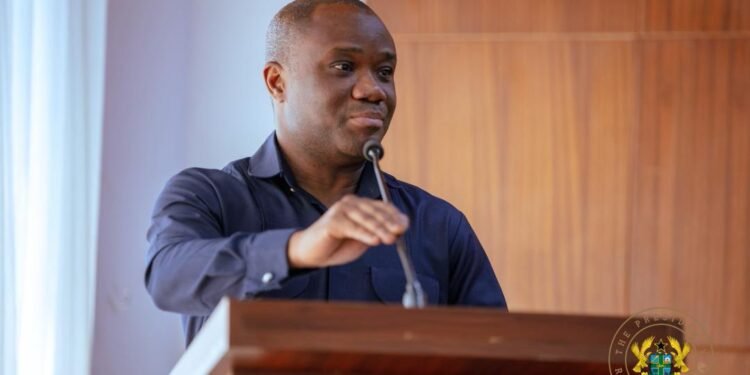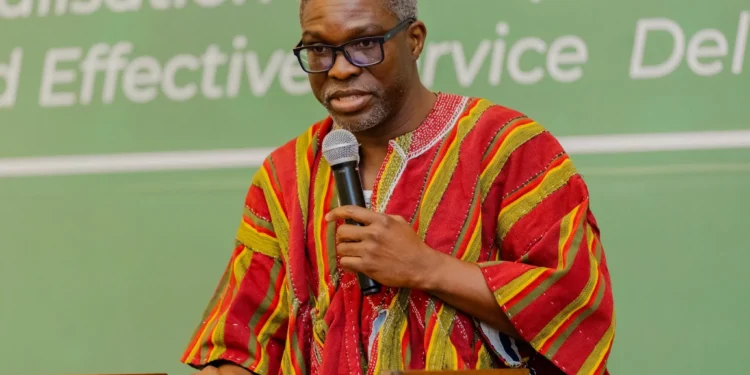The High Court has dismissed the West African Examinations Council’s (WAEC) stay of execution application, a decision that has been met with strong reactions from both legal representatives involved in the case.
Private legal practitioner Martin Kpebu, representing the plaintiffs, has expressed satisfaction with the ruling, while WAEC’s Head of Legal Affairs, Rev. Victor Brew, has indicated the council’s intent to appeal the decision.
In response to the court’s ruling, Martin Kpebu strongly criticized WAEC’s actions, arguing that the examination body has failed to act fairly and reasonably as required by the 1992 Constitution.
“I’m disappointed that Mr. Brew would want to continue… Enough, enough! The problem is that WAEC is not realizing that we are dealing with this matter in a constitutional context. The Constitution, Article 23, requires that administrative bodies act fairly and reasonably. So, as we’re speaking now, more than one month on, WAEC is not able to tell my clients what specific offense they have committed.’’
“WAEC engaged in speculative cancellation of results. I am telling you that we went to court and finished this case, yet WAEC could not produce a single charge against any of these students. The Constitution says WAEC must act reasonably and fairly. Where is the reason and where is the fairness?”
Martin Kpebu Private Legal Practitioner
He also revealed that, despite multiple engagements with WAEC, no concrete evidence came out of it charges.
“I had a meeting with WAEC’s legal team before we came to court. We were in court for three weeks. The case is over. Yet, they have not been able to specify a single charge against any of my 10,522 clients.”
Martin Kpebu Private Legal Practitioner
WAEC’s Response: “Candidates Were Aware of the Rules”
Reacting to Kpebu’s claims, Rev. Victor Brew, Head of Legal Affairs at WAEC, refuted the assertion that no charges had been leveled against the affected candidates.
“I don’t agree with my learned friend[Kpebu] on the other side. The point is that we usually upload the results, and candidates will see against their subjects that they have been withheld. Prior to taking the examinations, candidates are made aware of the rules regarding malpractice. If you copy, if you bring in a mobile phone, if you engage in any prohibited conduct, there will be consequences. So, it’s not as if they don’t know the rules from the get-go.”
Rev. Victor Brew Head of Legal Affairs at WAEC
Brew acknowledged that WAEC could provide more specific details in its communications to candidates but insisted that they are not completely unaware of the reasons behind the withheld results.
“Perhaps what Mr. Kpebu is asking for is a more detailed breakdown, stating explicitly that a candidate was caught in possession of a mobile phone or was involved in collusion. That is something we can certainly improve upon. However, it would not be wholly accurate to claim that these students are completely unaware of the allegations against them.”
Rev. Victor Brew Head of Legal Affairs at WAEC

Despite the court ruling against WAEC’s stay of execution application, Rev. Brew confirmed that the examination council intends to challenge the decision.
“We have taken note of the court’s decision, but we will be filing an appeal against it. WAEC remains committed to upholding the integrity of examinations while ensuring that all due process rights of candidates are respected.”
Rev. Victor Brew Head of Legal Affairs at WAEC
The High Court’s decision has brought into focus the constitutional obligations of WAEC as an administrative body. Article 23 of the 1992 Constitution mandates that administrative bodies act fairly and reasonably, a standard that Kpebu argues WAEC has failed to meet in this case.
This case has significant implications, not just for WAEC, but for other administrative bodies that handle disciplinary actions against individuals. The expectation is that they must provide clear, specific, and timely justifications for their actions, failing which affected parties can seek redress through the courts.
The High Court’s rejection of WAEC’s stay of execution application marks a critical juncture in the dispute over withheld results.
While Martin Kpebu has hailed the ruling as a victory for fairness and due process, WAEC has indicated its intent to appeal.
The legal battle is far from over, and the outcome of WAEC’s appeal will determine the next course of action for the affected students. In the meantime, the case continues to highlight the need for transparency and accountability in the administration of examinations in Ghana.
READ ALSO; Prof. Bokpin Backs President Mahama on Revising IMF Deal























